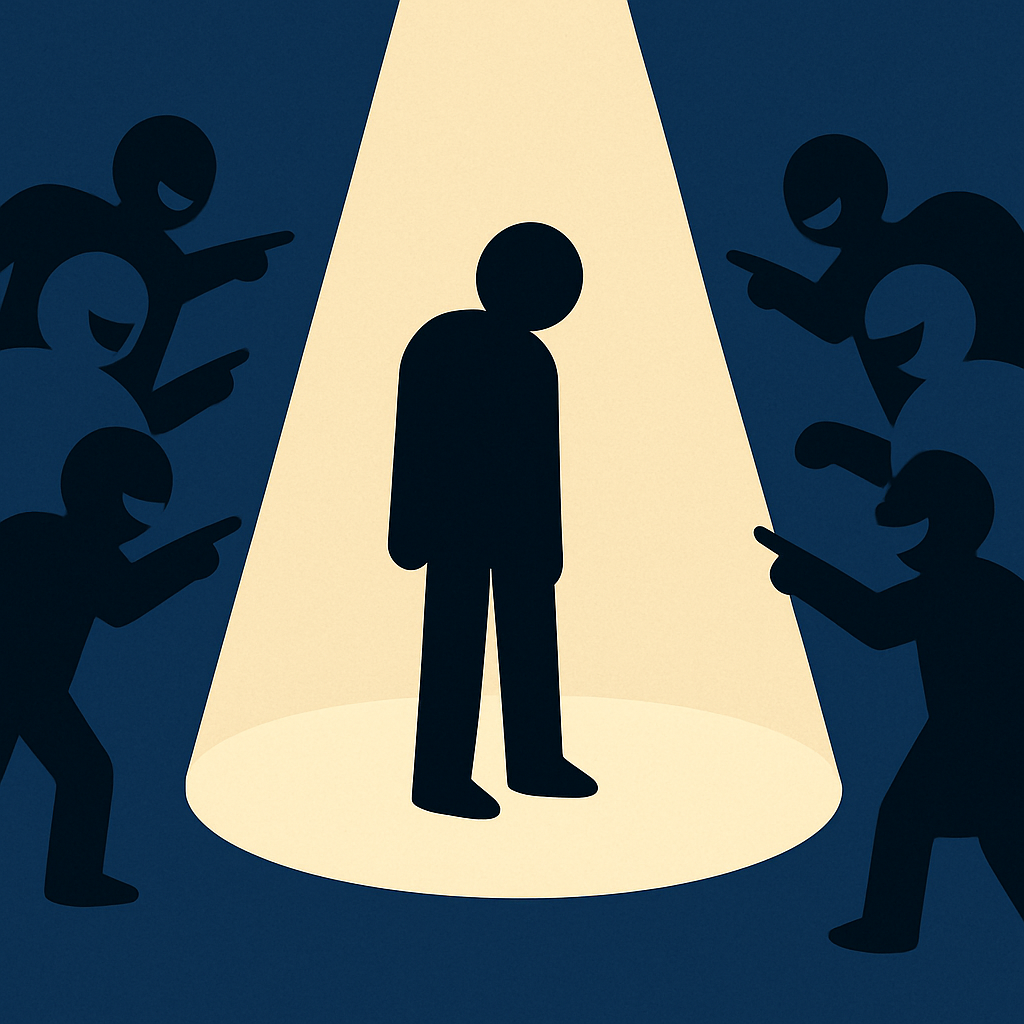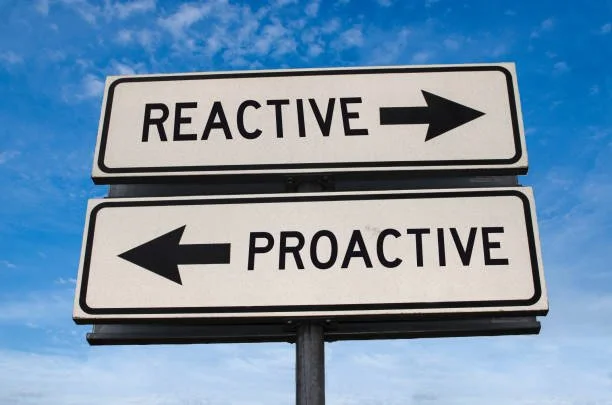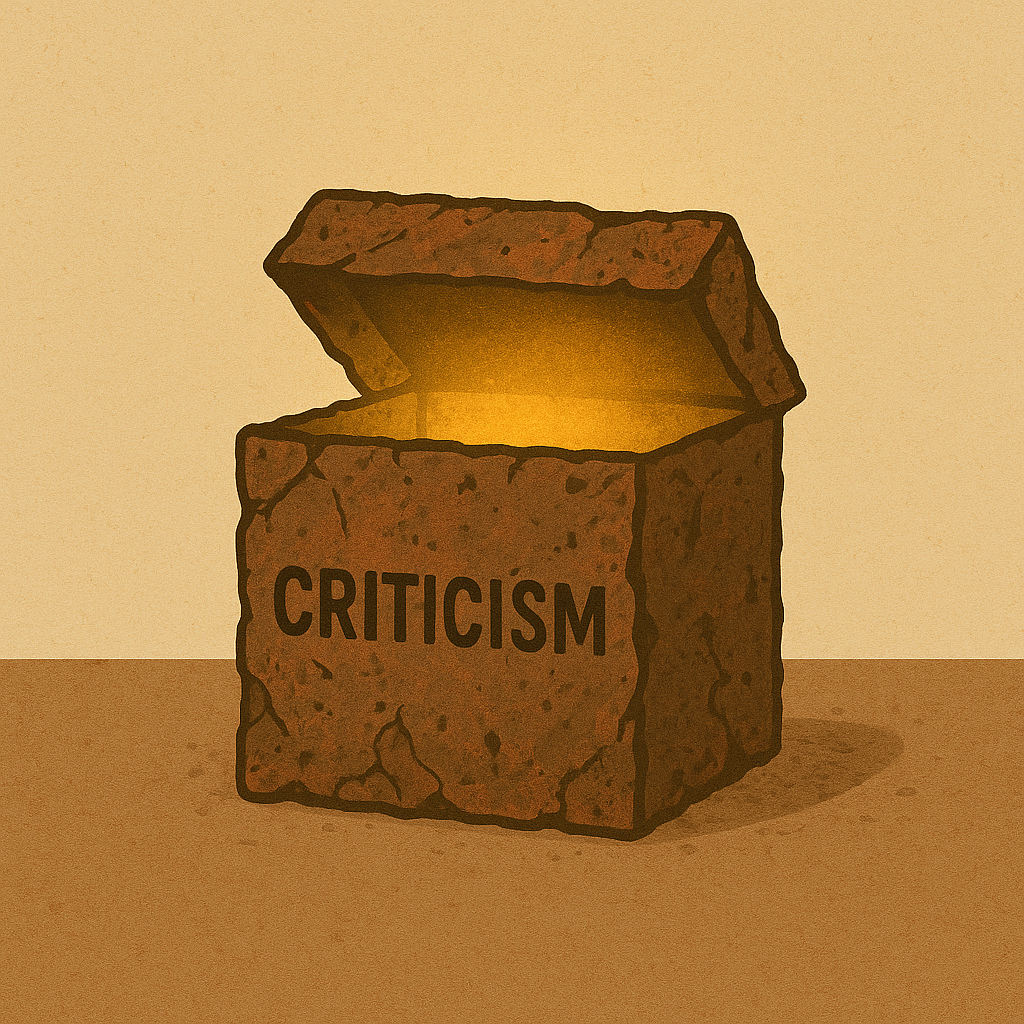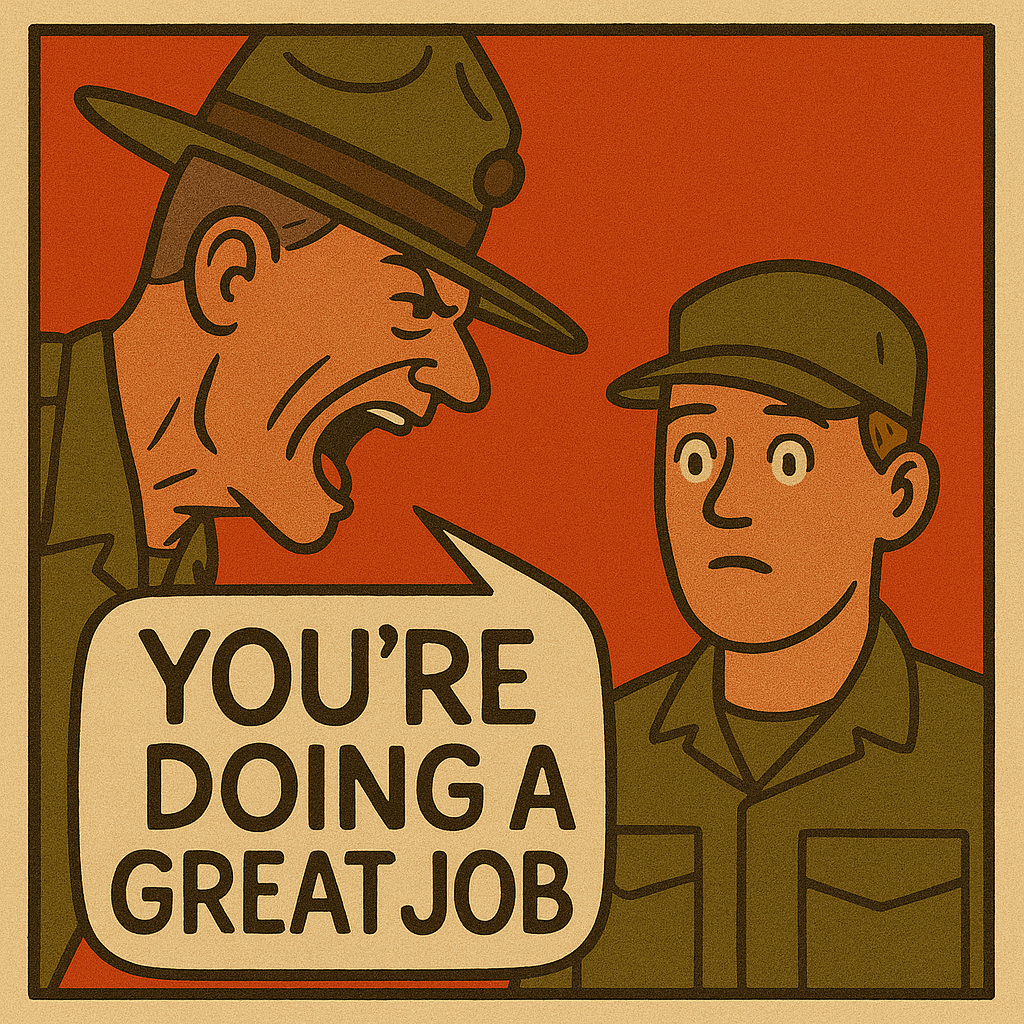What’s more disturbing than when someone Tries to Cut YOu Down For NO Reason?
Being criticized can feel like such an unfair curse. You work so hard to stay afloat, and at any moment, someone can come along and pop a hole in your boat with a total lie. Especially when you’re not expecting it, the shock and anger are automatic. Your mind spins, as you try to figure what to do or how to make sense of the ridiculous thing they said.
You imagine the perfect comeback, or even plan ways to make them feel the sting you that you did. But then you either blow up or just avoid them. Even when you try to calm down and let it go, your mind keeps racing anyway.
So what does it take to bounce back quickly after being criticized, instead lashing out or shutting down?
Know Who You Are
It’s impossible to avoid criticism. Do something, and you’ll be judged for it. Do nothing, and you’ll be judged for that too.
Even if you retreat from the world and live in silence, you’ll end up criticizing yourself.
Criticism isn’t the problem. It’s the fear of criticism that should be avoided.
There are two ways to overcome this fear:
Make your mark indisputable
If the goal is to make everyone like you, then no matter how hard you try, all it takes is one critic to sabotage your efforts.But if the goal is to succeed, then let your work speak for itself. Build your legacy. Prove them wrong with your results, not your words. Carve the meaning of your life so deep into the stone that it can’t be removed by many critics scratching the surface. The fact that they care is a mark of distinction that you can be proud of.
You can even do socially by developing connections and relationships that are so substantial and deep, the critics don’t matter.
Develop integrity
Aren’t there things you believe in, regardless of what anyone else thinks? Don’t you try to live up to those ideals, regardless of what they say?
Clarify who you are, what you value, what you believe in, and what your purpose is. Then set yourself up to make choices in alignment with self-knowledge. Integrity depends on your choices, not on another people’s opinions. That’s why, the more you accept who you are, and feel good about your choices, the less it matters what random people think.
Notice when you feel offended
Handling criticism well doesn’t happen automatically. What happens automatically is lashing out in the heat of the moment, trying to bury it, or plotting the perfect comeback. So don’t be hard on yourself if you struggle. It’s normal.
The first step is to interrupt your automatic reactions. This moment of awareness, at whatever point it comes, is the fork in the road where you can turn towards the more dignified path. So instead of getting carried away—just pause, notice that you feel offended. This is the beginning of being proactive instead of reactive.
Tend to Your Hurt Feelings
You might theoretically know that your self-worth doesn’t depend on being liked by everyone. But harmonizing your emotional reactions with that understanding is a journey on its own.
Human nature is such that humiliation is the last thing we want to feel. So when we do feel that way, we try to get rid of it by shifting the focus to blaming others. This can protect your sense of self in the short term, but it also traps you in resentment. Instead of healing the wound, you remain fixated on needing something from the offender first.
When someone criticizes you, it’s essential to acknowledge—at least to yourself—that your feelings are hurt, instead of spiraling into shame or blame.
Here are some ways to tend to the wounds from harsh words:
Take a step back
You are not your feelings and they won’t last forever.
Notice them, breathe through them, and give yourself space to be human.
Remember your humanity
Everyone gets criticized sometimes. So when it happens to you, it’s no proof that you’re uniquely flawed or singled out. It’s just part of life.
Seek healthy validation
Ask someone you trust or admire for feedback, instead of looking to people you don’t.
Encourage yourself
Learn your lessons without punishing yourself. Encourage yourself the way a friend would. Focus on moving forward positively instead of trying to change the past. Don’t let one fault cancel out all your other redeeming qualities. Be grateful for the opportunity to be alive, despite all the imperfections that come with it.
Examine your expectations
It’s important to make the expectations in your relationships are reasonable, impartial, and have been clearly communicated. Otherwise, if your expectations, or those of others, are unreasonable, self-serving, or unspoken, you’re setting yourself up for disappointment and frustration.
So ask yourself: What do you believe they should have done differently than saying what they said? What do they believe you should have done differently than what you did?
The answer to these questions will clarify exactly what the expectations are that were violated.
Next, run those expectations by three tests.
Reasonable: Many things we do have an effect on other people, and we all depend on our expectations of each other to function as a society. There are also established standards for all sorts of endeavors—like math, music or customer service—that make someone helpful or disruptive. That’s why people need to correct each other sometimes, especially in relationships, teams, and communities.
If everyone followed these expectations, would it strengthen how people work and live together—or would it undermine our social cohesion and progress?
Immanuel Kant said: “Act only according to that maxim whereby you can at the same time wish that it should become a universal law.”
Impartial: It’s important to be consistent, and not entertain double standards. Sometimes we expect other people not take it personally when we correct their behavior, but then we turn around and feel offended when they point out our mistakes. If you want people to take correction constructively, then model that same humility when the magnifying glass turns toward you.
Would this expectation be fair if it applied equally to others in your situation, no matter which side of the correction they were on?
Clear: Consider why they didn’t act according to your expectations. Either they blatantly betrayed your trust, or what felt like a betrayal was actually a misunderstanding, disagreement, or lack of communication.
Were your expectations clear, understood, and agreed upon? Was this done explicitly (by verbal or written agreement) or implicitly (through assumed social norms)?
Consider the Merit of Their Criticism
Some of the most valuable feedback you’ll ever receive comes wrapped in ugly packaging. A person might deliver it harshly, sarcastically, or at the worst possible moment—but if you can separate the message from the delivery, you might find something valuable inside that truly benefits you.
The “ugly packaging” is this instance is the judgmental, negative, and loaded language people use. The first questions you should ask yourself are:
What exactly did I say or do that the critic is focused on? How would an impartial observer describe that behavior?
This question helps you to remove the negative spin or interpretations, and just look at the facts.
Next, look for the values embedded in the criticism. If they called you “careless,” it must mean they value being careful. If they say you “talk too much,” it must mean they want more quiet or space for others to speak, or something like that. Ask yourself:
What are the positive values they think I didn’t fulfill? Do I share those values? Or is it at least something that’s necessary for cooperation or effectiveness?
If the answer is yes, then even poorly delivered criticism just revealed an opportunity for improvement. If not, then the value is meant for someone else.
You don’t need to thank someone for their criticism unless it was offered in good faith, delivered with respect, and genuinely benefited you. You don’t want to encourage bad behavior when you could seek the same insights from a trusted source.
Assess their Delivery
You can acknowledge that a message contained something useful, while also recognizing that the way it was delivered was inappropriate.
Did they speak with respect, or was their tone harsh, dismissive, or sarcastic? Did they correct you privately and directly, or did they criticize you behind your back or in front of others? Did it feel like their goal was to help, or to tear you down?
If the delivery failed these tests, you don’t have to ignore it. Telling them how you feel sets a boundary. It communicates that you’re open to feedback, but only if it’s given in a way that respects your dignity.
Take a Stand
When dealing with a critic, the best thing you can do is carry yourself in a way that signals self-respect. Lashing out uncontrollably or shrinking into submission signal weakness. Don’t show them that they have power over you.
You no longer depend on their apology, approval, or punishment before you can feel good about yourself. Either there are things you can work on, or their words glide off you.
If you’re interested in reconciliation, set clear expectations. Let them know what you would need in order for them to earn your trust back. Stand up straight, make direct eye contact, and speak with a calm confidence like you believe what you’re saying. Ask what led to their mistake and how they intend to change. Then allow them to earn back your trust through consistent action. If it’s about cooperating in your shared roles, treat it as a matter of community expectations rather than personal ones. Keep it formal, respectful, and professional. You might have to interaction with so many people in public or at work, but you don’t owe anyone a place in your private life unless they’ve proven that they deserve it.
Of course, they might disrespect your expectations—and they have the right to make that choice. But you also have the right to decide what kind of relationship they can have with you. You can still treat them with basic respect, but you don’t have to offer closeness, trust, or loyalty unless they’re willing to respect your boundaries and meet the expectations that come with their role. You’re not giving them an ultimatum, you’re just letting them know the price of entry. And there’s no pressure. The choice is theirs.
Final Reflection
In the wild, crows sometimes attack eagles. But the eagles never waste time trying to fight the crow. Instead, they rise higher and higher into the sky, until the crows can’t breathe at that altitude and have to let go.
That’s what true power looks like. It isn’t getting angry or making demands. It’s having control over yourself, and demonstrating your dignity through action. The eagle’s self-worth isn’t shaken by the crow’s criticism. It doesn’t need revenge or applause. It just continues up higher and higher.
None of us has perfect patience, but we can learn how to get back on track when criticism gets under our skin. It starts by accepting that criticism is an inevitable part of living in human society, and choosing to rise anyway.
When you feel offended, take a break and tend to your own wounds first. Make sure the expectations are reasonable and impartial, and then take a stand with calm strength.
Ultimately, the destination you should aim for is far above the clouds of blame and praise, where you accept who you are and believe in your contributions, even if others don’t. Wherever you are on this journey, every step forward makes you more secure and connected person.









